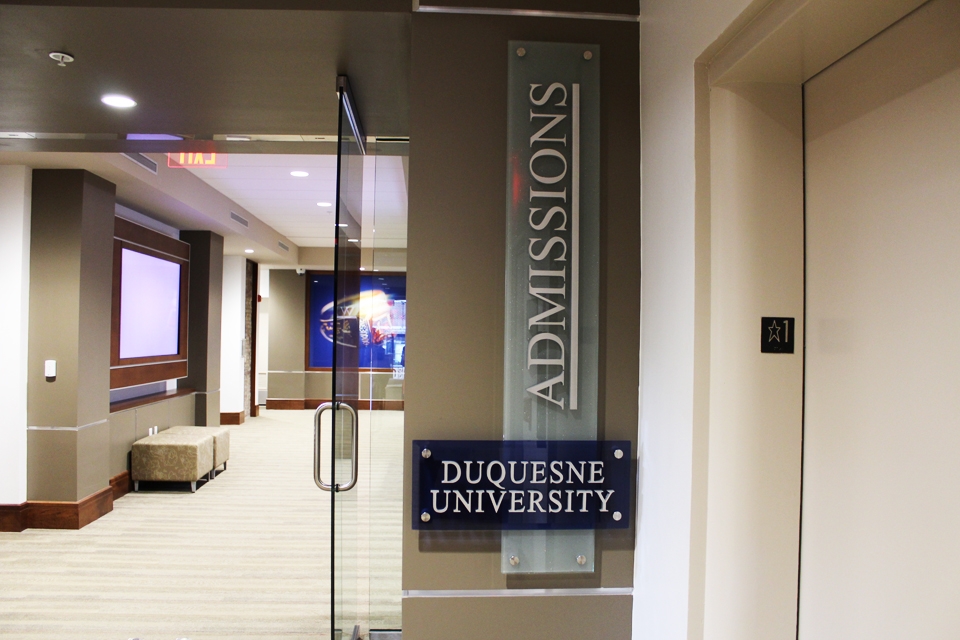
11/02/2017
By Zach Landau | A&E Editor
Raymond Arke | News Editor
Kailey Love | Photo Editor
Well, it’s that time of the year again. It’s election season 2017, and after the huge presidential race last year, one could almost be forgiven for sitting this smaller, off-year race out.
Almost.
Truth is, a lot of important decisions are made on a state and local level, perhaps even more important than nationally. As such, we have compiled a brief primer on the Pennsylvania 2017 Elections for your perusal, and we encourage everyone who is registered to vote to do so. If you voted last year, chances are that you’re still registered, so there’s no excuse not to spend 20 minutes next Tuesday, Nov. 6, casting your ballot.
Without further ado:
Local Elections

Voting duties go far beyond the presedential election every four years. Local elections happen more frequently, and often, the results will impact your city, state or county in many different ways.
Alright, let’s start really local. The Allegheny County Council elections are pretty tepid, with two districts — District 9 and District 12 — featuring uncontested candidates.
But then there’s the other four elections. We have a two and two deal here with two Republicans and two Democrats defending their seats.
We’ll begin with the Republicans: In District 1, which includes North Fayette, Moon and Ross Townships, Tom Baker (R) is fending off challenger Jack Betkowski (D). Baker is the president of Baker Leadership, and Betkowski was elected to Ward 9 representative for the Ross Township Board of Commissioners in 2015. Baker has served as District 1’s representative since 2013.
In District 3, Democratic candidate Anita Prizio is gunning for Edward Kress’ (R) seat next Tuesday to represent Fox Chapel, Millvale, Hampton and Shaler, among others. Both candidates earned their law degrees here in the ‘Burgh: Kress from Duquesne’s School of Law and Prizio from Pitt. Kress, like Baker, has represented his district since 2013.
On the flip side, incumbent Patrick Catena Jr (D) is pitted against Dimitrios Pantzoulas (R) for the District 4 seat, representing South Fayette, Robinson and Carnegie. Charles Martoni (D) of District 8, representing Plum, Monroeville and East McKeesport, will be facing Michael Dell (R) next week as well. Martoni is a campus president and adjunct at Community College for Allegheny County and was first elected to his position in 1999. Dell was elected to the Plum Borough Council in 2007 and has served since.
There’s also one seat up for grabs on the Pittsburgh City Council. Cletus Cibrone-Abate (R) and Anthony Coghill (D) will be vying for the District 4 seat next Tuesday. The seat is currently held by Democrat Natalia Rudiak who is leaving the position to pursue other opportunities.
Judicial Elections
Supreme Court of Pennsylvania
This is the highest court in Pennsylvania. It’s a seven member body.
Sallie Mundy – Republican. University of Pittsburgh School of Law (J.D.) 1987. Washington and Jefferson 1984. Highly Recommend by the PA Bar Association. Superior Court of PA Judge 2010-2016. Lawyer for 22 years in Eastern PA region.
Dwanye Woodruff – Democrat. Duquesne University School of Law (J.D.) 1988. University of Louisville 1979. Seventeen years of private practice. Twelve years as judge on Common Pleas Court of Allegheny County. Allegheny County Jail Oversight Board.
Superior Court of Pennsylvania
The Superior Court is an appellate court, which means it hears cases that are appealed from the 67 county Court of Common Pleas in Pennsylvania. The vast majority of cases end here; only a few each year are picked by the Pennsylvania Supreme Court. The Superior Court consists of 15 members who each serve 10-year terms. You can vote for four of the candidates.
Emil Giordano – Republican. Villanova University School of Law (J.D.). Moravian College. Highly Recommended by the PA Bar Association. Currently a judge on the Northampton County Court of Common Pleas. Endorsed by the PA State Troopers Association.
Wade Alan Kagarise – Republican. Widener University School of Law (J.D.). Indiana University of Pennsylvania. Currently a judge on the Blair County Court of Common Pleas. Seven years as Blair County Deputy District Attorney. Twelve years of private practice. U.S. Army Reserve veteran. Adjunct professor at Saint Francis University (PA).
Deborah Anne Kunselman – Democrat. University of Notre Dame School of Law (J.D.), cum laude. Pennsylvania State University. Highly Recommended by the PA Bar Association. Twelve years as judge in Beaver County. Thirteen years as an attorney. Eight years as Chief County Solicitor for Beaver County.
Maria McLaughlin – Democrat. Widener University School of Law (J.D.). Penn State University. Attorney in the Philadelphia District Attorney’s Office for 19 years. Former Chief Assistant District Attorney of the Child Support Enforcement Unit. Currently serving on the Philadelphia Court of Common Pleas.
Jules Mermelstein – Green Party. American University’s Washington College of Law (J.D.), cum laude. Arcadia University (M.Ed. in Secondary Social Studies). Temple University, summa cum laude. Licensed attorney in PA and a partner in the Mermelstein & Light law firm. Volunteer attorney for the ACLU. Five terms as Upper Dublin Township Commissioner.
Geoffrey Moulton Jr. – Democrat. Columbia University School of Law (J.D.). Amherst College. Law clerk for the United States Supreme Court. Eight years as federal prosecutor in Philadelphia. Served as chief counsel to a U.S. Senator. Chief of Staff of the Special Inspector General for the Troubled Asset Relief Program. Directed independent investigations of the ATF raid on the Branch Davidians in Waco for the U.S. Department of the Treasury and of the Jerry Sandusky investigation for the PA Office of Attorney General. Endorsed by former Vice President Joe Biden, among others.
Mary Murray – Republican. Duquesne University School of Law (J.D.). Duquesne University. Magisterial District judge for past 13 years. Practiced law for 20 years. Chair of Rules Committee for the Special Courts Judges Association. Served as Auditor of Moon Township.
Carolyn Nichols – Democrat. Temple University School of Law (J.D.). Temple University (LLM Trial Advocacy). Eastern University (PA MBA). Temple University. Practicing, licensed attorney for 20 years. Currently, judge on the Philadelphia Court of Common Pleas. Former Deputy Secretary of External Affairs for the Mayor’s Office of Philadelphia.
Craig Stedman – Republican. Penn State Dickinson School of Law (J.D.), with high academic honors. University of Delaware. Highly Recommended by the PA Bar Association. Currently District Attorney of Lancaster County. Launched the Lancaster County Elder Abuse Protection Unit and Task Force. Served as an officer in the U.S. Army Reserves. Endorsed by the PA State Troopers Association, the NRA, among others.
Commonwealth Court
The Commonwealth Court is the state’s other appellate court, the partner to the Superior Court. However, this one only deals with legal matters that relate to state and local government agencies. It consists of nine judges who serve for 10-year terms. You’ll be voting for two of the candidates this election.
Christine Fizzano Cannon – Republican. Widener University School of Law (J.D.), cum laude. University of Arizona. Rated as Highly Recommended by the PA Bar Association. Seventeen years as an attorney. Served as Assistant County Solicitor. Former Special Prosecutor of Child Support Enforcement.
Ellen Ceisler – Democrat. Temple University School of Law (J.D.). Temple University. Montgomery County Community College. Ten years as a judge on the Common Pleas Court.
Irene Clark – Democrat. CUNY Law School (J.D.). Antioch University McGregor School (M.A. Conflict Resolution). University of Pennsylvania. Ten years as judge on the Pittsburgh Municipal Court. Public Interest attorney.
Paul Lalley – Republican. Dickinson School of Law (J.D.). University of Pennsylvania. Former Pennsylvania Supreme Court law clerk. Appellate litigator. Highly Recommended by the Allegheny County Bar Association.
Ballot Measures

The Allegheny County Council elections feature two candidates that are running uncontested.
The Pennsylvania Allow Taxing Authorities to Exempt Full Value of Homestead Amendment, the single ballot measure appearing in the general election, has the ability to inflict a great deal of change (or none at all). In simplest terms, this measure allows legislators to reduce or eliminate property taxes and create distinction between residential and commercial properties.
More specifically, if this amendment passes, the state legislature would be allowed to increase the assessed value of a home that local taxing authorities are permitted to exempt. The current law, in place since 1997, says that local taxing authorities are only permitted to exempt 50 percent of the median value of any home within their jurisdiction; this ballot measure raises that number to 100 percent of their assessed value.
Many see it as the first step towards, ultimately, abolishing property tax altogether. It is widely supported by Republican members of Congress across the state and a handful of Democrats as well.
However, there are several implications if this law were to pass. First of all, the amendment does not include any language that specifically compels lawmakers to make any of the proposed changes. In order to do so, they would have to create another round of measures in order to take advantage of the amendment in full.
It may also drastically change the way schools in Pennsylvania are funded. As the law currently stands, 41 percent of K-12 education is funded through local property tax (totalling about 12.6 billion annually) according to Keystone Crossroads analysis. For schools, property tax is a crucial part of the overall funding of education as well as keeps control of that funding at the local level. Without local property tax, this funding would come from other taxation means such as sales tax (which is a much more unreliable source due to the constant fluctuation of the economy).
However, if this amendment would pass and be utilized in full, the effects on different school districts would be disproportionate, with wealthy school districts being subsidized (taking away from poorer districts and potentially causing them to be even worse off).
The counter argument in favor of the measure focuses on how the property tax affects those who are in danger of losing their home due to rising property taxes. One of the largest populations this affects is seniors, who usually have a fixed income and don’t even have children that attend the schools their property tax is funding. School districts with swelling enrollment numbers have struggled with local property tax, putting pressure on homeowners and creating an increased sense of discontent amongst those against the tax.
Though there are valid points on both sides of the argument, it is important to once again revisit the fact that even if this legislation passes, the language of the ballot measure is not specific enough to warrant legislative action and without subsequent measures and laws passed by legislators, there may not be any change at all. This should be kept in mind when voters head to the polls, regardless of where they fall on the issue at hand.




